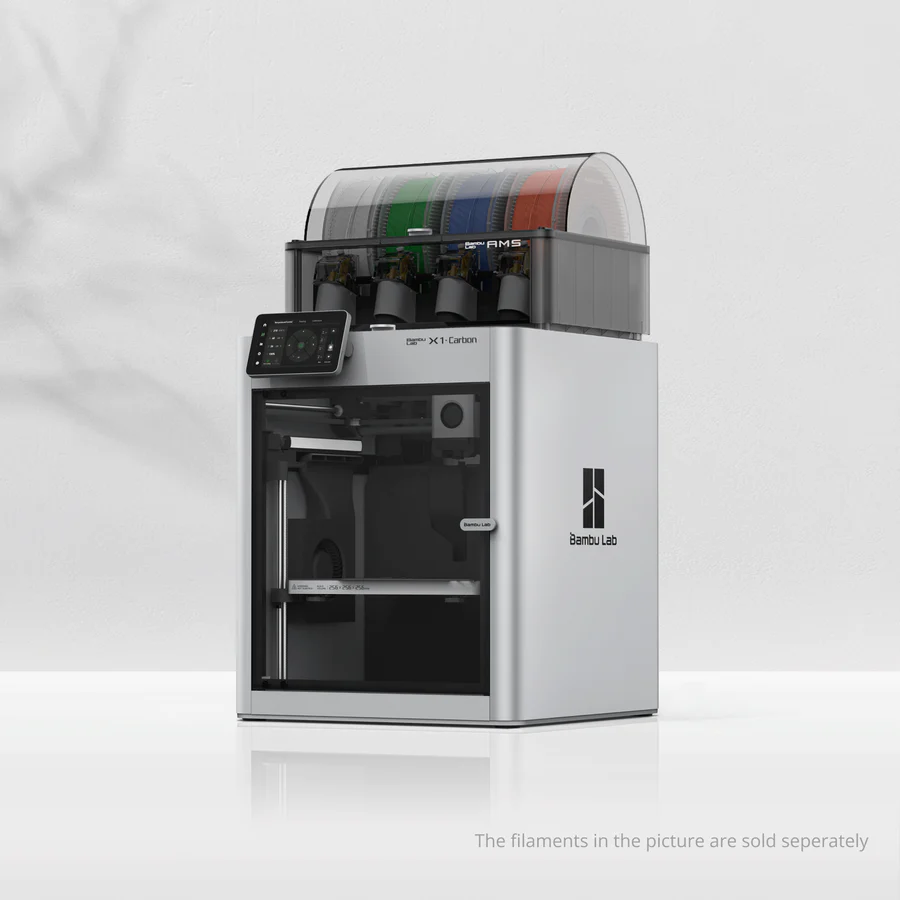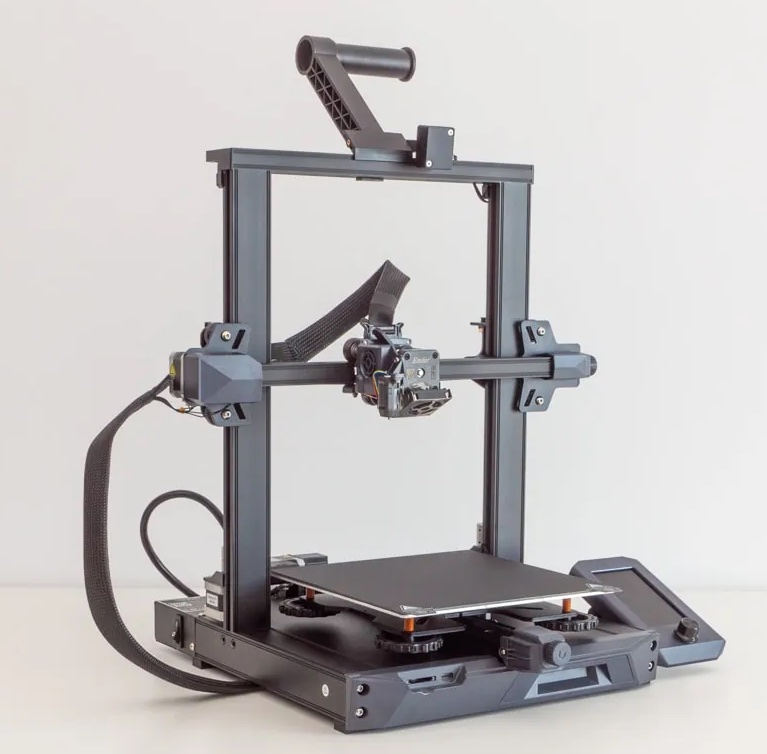Compare X1 carbon vs Ender 3 S1 Plus
Comparison between the best 3D printers
Choose the best 3D printer at the best price. The cheapest 3D printers are here.
Buy a 3D printer here with 3D Fila.
 |
 |
|
| Model | X1 carbon |
Ender 3 S1 Plus[BUY Ender 3 S1 Plus] |
| Printing Material | Filament | Filament |
| Buy Filament for Bambu Lab X1 carbon | Buy Filament forCreality 3D Ender 3 S1 Plus | |
| Estimated price | $1449,00 | $549,00 |
| Manufacturer | Bambu Lab | Creality 3D |
| Release Year | 2023 | 2022 |
| Print Volume [mm] | 256x256x256 | 300x300x300 |
| Printer Size [mm] | 389x389x457 | 557x535x655 |
| Weight [kg] | 14,13 | 10,25 |
| Power Loss Recovery | YES | YES |
| Enclosed printer | YES | NO |
| Bed Leveling | Automatic | Automatic |
| Filament End Sensor | YES | YES |
| Bed type | Heated | Heated |
| Power supply system | Direct Drive | Direct Drive |
| Standard nozzle | 0,4 | 0,4 |
| Maximum Nozzle Temperature [°C] | 300 | 260 |
| Maximum Bed Temperature [°C] | 120 | 100 |
| Maximum printing speed [mm/s] | 500 | 150 |
| Filament holder | YES | YES |
| Camera for supervision | YES | YES |
| Recommended filaments | PLA, PETG, TPU, PVA, PA, PA-CF, Nylon, PC | PLA, PETG, Tritan, Flex, ABS |
| Recommended slicers | Bambu Studio, Super Slicer, Cura, Prusa Slicer, Orca | Cura, Simplify, Slic3r, IdeaMaker |
| Maximum Resolution [mm] | 0,1 | 0,1 |
| Processor | Quad ARM A7 1.2 GHz | |
| Display | Touchscreen 5'' | Display touchscreen 4,3'' |
| Power Supply | 350 W | 110/220V / 350W |
| Connectivity | Wifi, Bambu bus, Cartão SD | SD / USB |
| Operating systems | Windows, Linux, Macbook | Windows, Mac, Linux |
| Date of registration in the system | 2024-04-10 | 2022-11-04 |
| Release date | 2023 | 2022 |
| Extra features | The Bambu Lab X1 Carbon revolutionizes 3D printing with stunning design, high print speeds, and a streamlined user experience. It stands out with its CoreXY system, a hotend capable of reaching 300°C, allowing for a wide range of filaments. Its LiDAR-assisted bed leveling system, vibration compensation, and AMS multicolor printing capability raise the industry standard. Print quality is impressive, with the ability to fine-tune for perfection. The X1 Carbon, with its closed build volume, not only promises but also delivers one of the most advanced 3D printing experiences available to consumers. | The Ender 3 S1 Plus 3D Printer offers quality prints with a build volume of 300x300x300 mm. It stands out for its "Sprite" extruder, automatic bed leveling and easy-to-use touchscreen. It has excellent safety features and simple assembly. In addition, it features temperature uniformity in the heated bed, suitable for various materials. |
| Support for multiple colors and materials (AMS and CFS) | YES | NO |
Notes * |
||
| Cost-benefit | 7 / 10 | 6 / 10 |
| Hardware | 6.4 / 10 | 2.8 / 10 |
| Tela | . | . |
| Print volume | 4 / 10 | 4 / 10 |
| Performance | 4 / 10 | 1 / 10 |
| [BUY Ender 3 S1 Plus] |
Conclusion |
| In comparing the Bambu Lab X1 Carbon and the Creality 3D Ender 3 S1 Plus, both printers offer distinct advantages tailored to different user needs. The X1 Carbon, as a higher-end model, features a robust design with advanced technologies such as a CoreXY system and LiDAR-assisted bed leveling, ensuring exceptional print quality and versatility with a wide range of filament materials. Its closed build volume and higher print speeds enhance the overall printing experience, making it suitable for professionals and enthusiasts seeking top-tier performance. On the other hand, the Ender 3 S1 Plus presents itself as a more budget-friendly alternative without compromising quality. It features a larger print volume, automatic bed leveling, and safety features that appeal to beginners and hobbyists. While it lacks some of the advanced features offered by the X1 Carbon, its ease of use and reliable performance make it a solid choice for those entering the world of 3D printing or for those who prioritize value over premium features. Ultimately, the choice between these two 3D printers hinges on the user's specific needs and budget. The X1 Carbon is for those willing to invest in high-quality, versatile equipment with advanced features, while the Ender 3 S1 Plus serves well for those seeking reliable performance at a more accessible price point. Both printers have their merits, and the decision will depend on the intended application and the user's level of expertise in 3D printing. |

